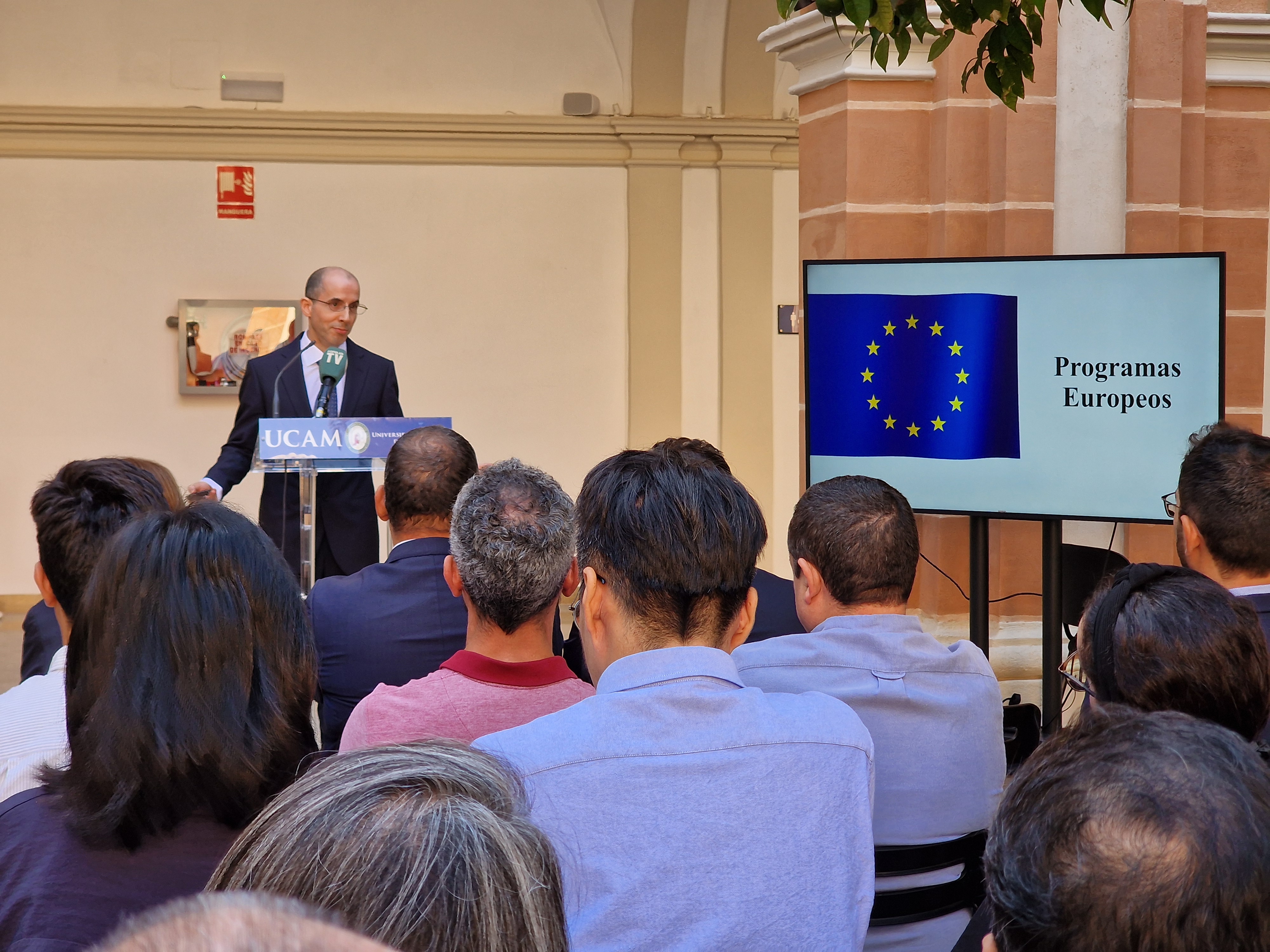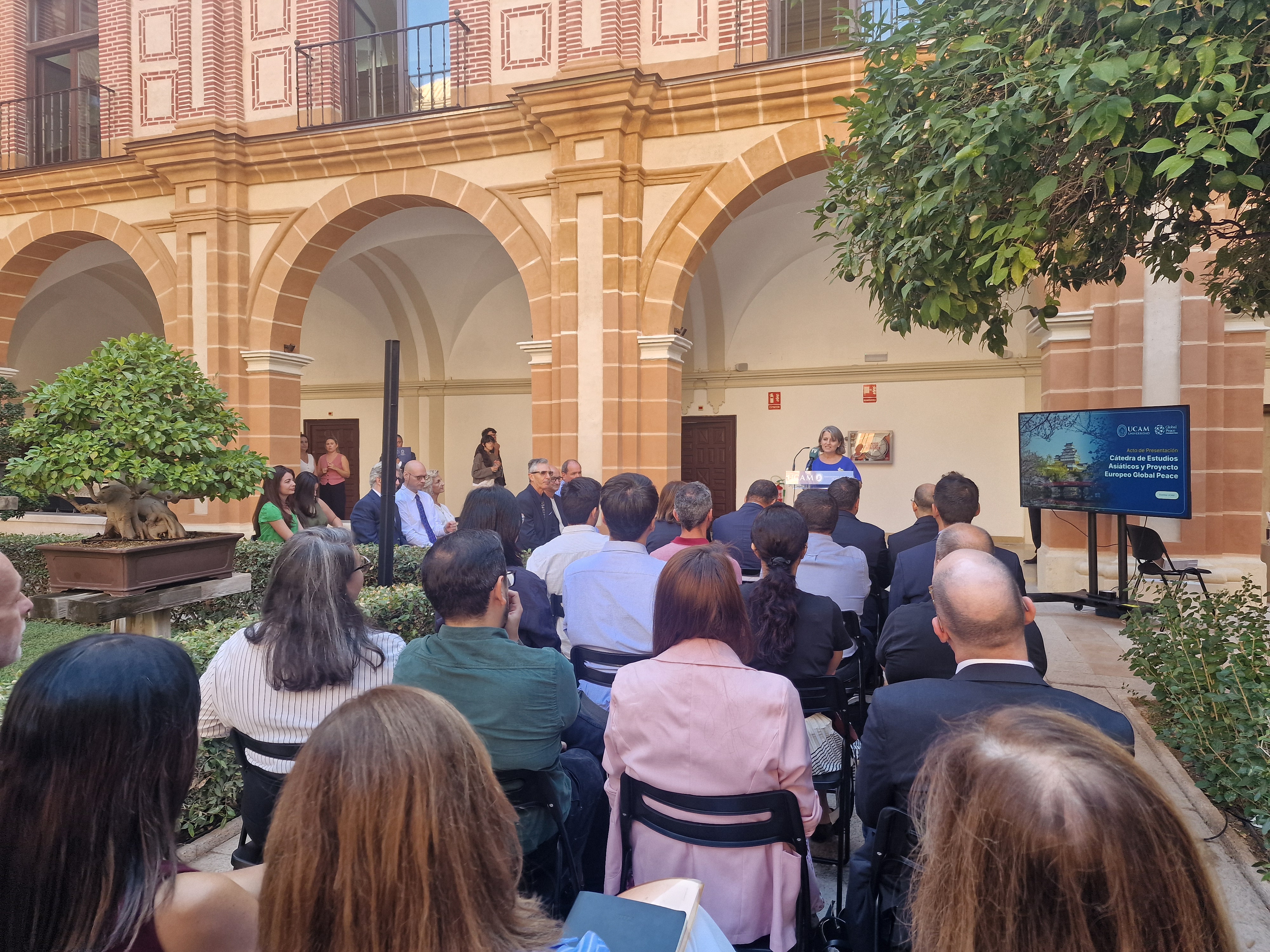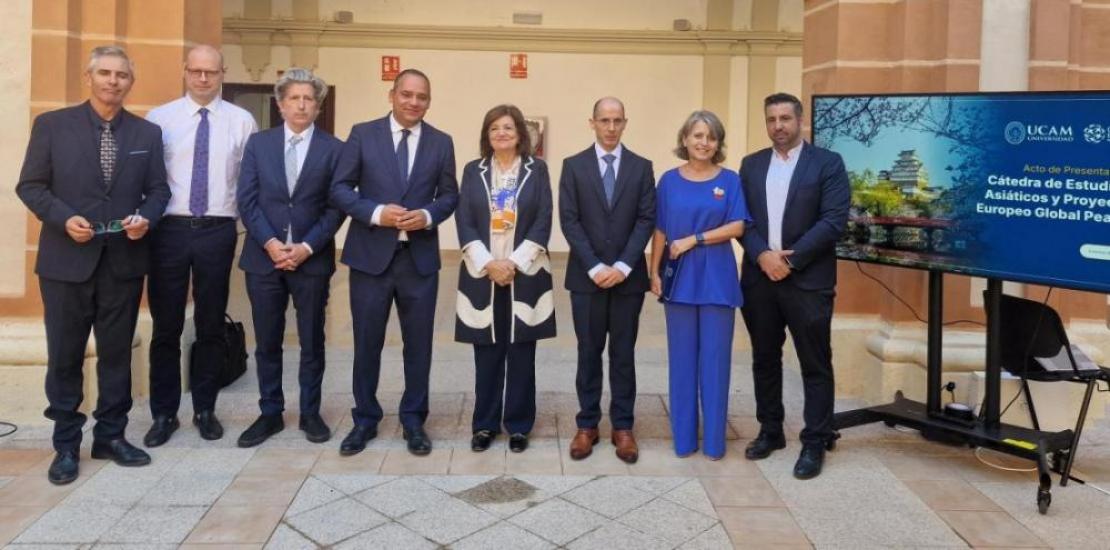UCAM creates the first chair in Asian studies in Spain
With the aim of strengthening ties between European and Asian cultures through training and research, it will be involved in peacebuilding, war negotiation, violence management, and resource and market administration.
In a globalised world, understanding Asian culture means opening up to one of the most dynamic and influential regions in the economic, social and cultural spheres. That is why the creation of the Chair in Asian Studies represents a new step in the international projection of the UCAM, which began its expansion into different Asian countries more than a decade ago and, through it, aims to promote dialogue, mutual understanding and cooperation, generating synergies between East and West and contributing to the academic development and cultural enrichment of the entire academic community and society as a whole.
The Cloister of the Los Jerónimos Monastery, the home of the University in Murcia, hosted the presentation of the Chair this morning, with speeches by María Dolores García, UCAM President; Lucio de Sousa, Professor at Tokyo University of Foreign Studies and Director of this new project; Antonio Caballero, Director General of Universities and Research for the Region of Murcia; Pablo Blesa, Chair Coordinator and UCAM Professor of International Relations and Vice-Rector of International Relations; and Estrella Núñez, UCAM Vice-Rector of Research. Given the transnational nature of the Chair, the event was also attended by prominent international researchers Christopher Rossi, lecturer at The Arctic University of Norway, and Gunnar Rekvig, director of the Planning and Coordination Department at The SasaKawa Peace Foundation (Tokyo) and lecturer at the University of Lisbon, who will participate in the Chair.
A unique initiative with significant global reach
Lucio de Sousa highlighted the importance of the work and training that will be developed by the Chair, ‘the first of its kind in Spain.’ Through the Chair there will be opportunities to study diplomacy (international, academic and commercial), and research projects based on peace studies will be developed, with the aim of also expanding into economic history. In addition, the leading professionals participating in the Chair will provide training to the first students of UCAM's new Bachelor's Degree in International Relations, and summer courses will be offered. The Chair will broaden UCAM research in the field of Social Sciences. De Sousa also stressed that this new Chair is fully aligned with the Christian values that guide the institution, such as the promotion of intercultural dialogue and social justice, ‘through the study of Asian history, global peace and socio-economic challenges’, a commitment to training leaders with global impact and the practice of business ethics.
‘This new Chair is fully aligned with the Christian values that guide the institution.’
Meanwhile, María Dolores García added that understanding between peoples and cultures is the basis ‘to get to know each other, to bring us closer together’ and to truly create a more peaceful, prosperous and supportive world. ‘As a Catholic university, we have a mission to bring to the world everything we receive, the intangible value of peace, which seems unattainable, but God puts us to work,’ she said. She also emphasised that this Chair represents a new step in the internationalisation of the University, opening up the possibility of taking its work for peace ‘to every corner of the world’.
In addition to spreading the name of UCAM throughout the world, the Murcian institution also takes the name of Murcia with it wherever it goes, as highlighted by Antonio Caballero, Director General of Universities and Research for the Region of Murcia, who congratulated UCAM on the creation of this Chair, ‘an initiative that is fully aligned with the regional government. Internationalisation is something that makes the region greater, and Universidad Católica San Antonio is, of course, fully focused on this,’ while also expressing ’the regional government's support for all the projects you undertake and in which you can collaborate with us.’
Learning about history, the path to peace
The first activity in this area is based on the development of research and academic excellence projects belonging to the European Commission's Research and Innovation Programme, Horizon Europe, which includes the European Research Council programmes, Pillar II of the Horizon Europe Programme (Integration of Social Sciences and Humanities), the Marie Curie Programme and Erasmus+, among others. Although the Chair was presented today, there are already three years of excellent work behind it, which has enabled UCAM to prepare a project for the European Research Council (an ERC Synergy), focused on the study and comparison of Asian and European regions in terms of peacebuilding, war negotiation, management of areas of violence, and administration of resources and markets, analysing how these negotiations materialise in peace treaties.
‘UCAM has the necessary characteristics for the creation of this Chair: We have the team, the necessary conditions and a forward-thinking mindset, because this is a modern university; a lively, new academy that is up to date in every respect.’
This initiative positions UCAM as a benchmark in the generation of synergies between East and West, contributing to the academic development and cultural enrichment of the entire academic community and society as a whole. UCAM has a high presence of foreign students on its campuses – exceeding 20% this academic year – in addition to the presence of the Murcian institution's branches in various Asian countries, agreements with numerous universities, research centres and institutions, and the creation more than ten years ago of the UCAM Spanish Institute Dubai, the only centre accredited by the Cervantes Institute in the entire Gulf region. For Professor Lucio de Sousa, UCAM has the necessary characteristics for the creation of this Chair: ‘We have the team, the necessary conditions and a forward-thinking mindset, because this is a modern university; a lively, new academy that is up to date in every respect.’





